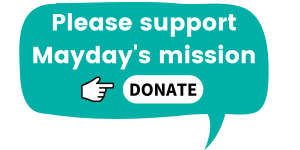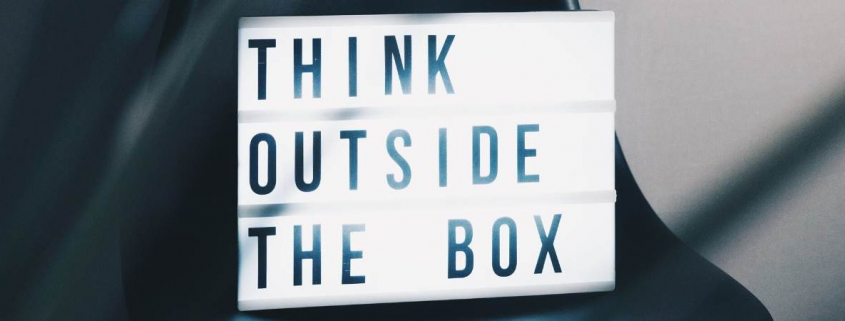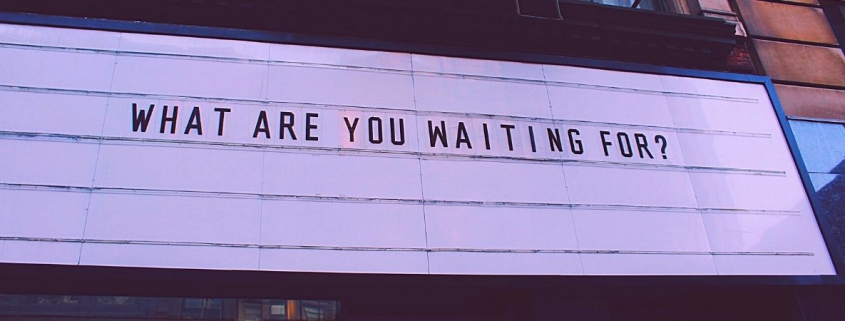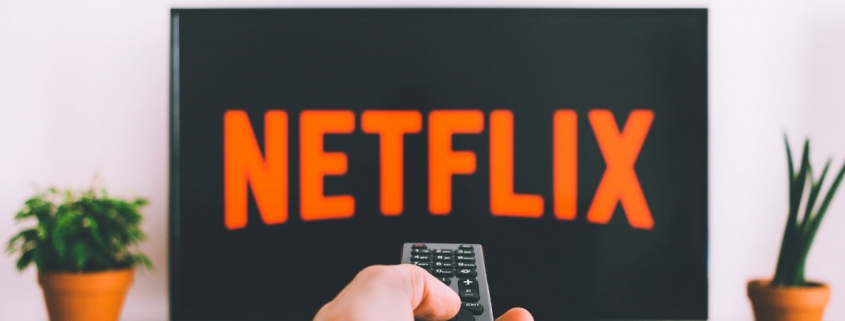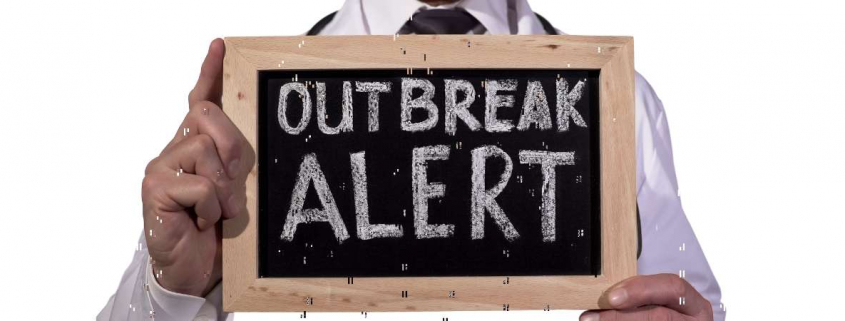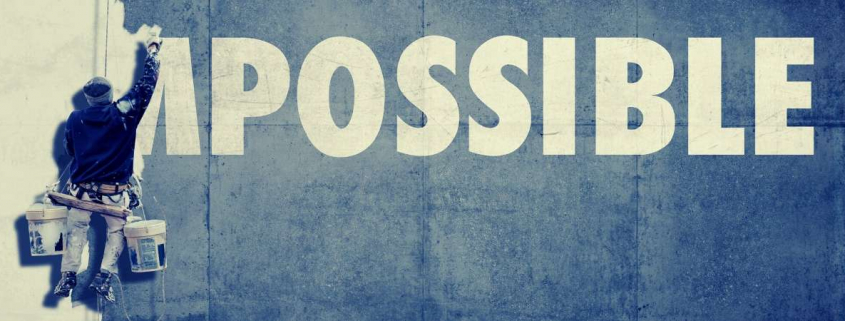Reflections on COVID-19 Lockdown from Rebecca Nelson, Mayday PTS Manager
Last week after restrictions were lifted, I emerged from my house, with my bad COVID-19 hair, which has strangely grown into a 1980s style mullet and I went on a social distance walk with someone who lives in a Mayday property.
While we were walking and chatting he said to me “Becks, I’ll tell you what, I love this COVID.”I enquired why and received the following response; “because up until all the COVID stuff people have been telling me that I’ve got to go out more and stop watching so much TV, now everyone is saying well done for doing nothing, also I’m getting free food delivered every day so I’ve got loads more money to spend on blow.”
I have missed out a few of the expletives and his delivery carried far more humour, but it was a really interesting statement which led me to reflect on what has happened over the last few months.
About 10 weeks ago I became ill – I suspect it was COVID-19 based, but can’t know for definite. As soon as people were aware we were self-isolating I was inundated with offers of assistance. People I wouldn’t normally hear from were phoning and messaging their support. I also noticed that a friend of mine, who is usually very morose, was suddenly alive she had a purpose, she felt needed, she was happy. I am incredibly grateful for everything everyone did during that time and feel very lucky that I have such a great support network, but the truth is I felt uncomfortable accepting help and at times accepted it when I didn’t need it so that I didn’t appear ungrateful or rude. When I finally started to recover from my illness, I was delighted, but also extremely pleased to take back full control of my life again.
When I returned to work I began to open my extensive, unread emails, as I worked my way through them it was full of services offering resolutions to a variety of COVID-19 related issues, some examples being:
- home food deliveries
- Collecting and delivering medicines
- Funding solutions for a variety of equipment
The list went on. My initial thought was this was great; people had access to various support requirements, where they had, like me, had fallen ill and needed to self-isolate. Particularly people who did not have access to the support networks that I did.
During the early days of my return to work, I started talking to people I coached and responded to some of the messages I had received from them. The majority of people I engaged with were bright and healthy, and most of them were more worried about me! One person, in fact, the man I went on the social distance walk with, said: “I think I had better stay in touch Becks – I mean I’m used to being isolated; I’ve been doing this for years, but I think you might go mad!” He had a very good point. I started to realise that maybe what was happening to me felt different from the people I coach. I needed to ensure I responded to the people I worked with, and not to the Crisis.
Due to lock down we are forced to work from home, therefore unable to meet with people face to face. We needed to work out how to do this effectively, how best do we coach virtually? This is where we had to be creative. We tried to ensure everyone had access to a phone. We then had a conversation to resolve the best way to keep in contact, should this be desired. We have used FB Messenger, WhatsApp, phone calls, whatever contact method that the individual felt comfortable with. We then reviewed constructive things we could still share with people, even though we weren’t meeting with them:
- Online games
- Facetime walks
- Reading the same book
Within those examples, some were more successful than others.
I am lucky as I am not a full-time coach I have other roles within Mayday to make me feel purposeful and useful. Even with that added variety, this has not been an easy time to be a coach. People like to help others, which can manifest in a sense of satisfaction during a crisis. It’s natural to want to do something to help fix a problem. Coaches do this job because they love working with people and enjoy that direct interaction. Unfortunately, due to lockdown, they’ve found themselves stuck at home trying to find creative ways to connect with people. It has been difficult, but they have managed to achieve it, and at the same time always put the people they work with first and listened to what was happening within their lives.
What has been even more difficult is to watch how other organisations and support agencies have responded; being busy, rushing around responding to things that were happening during lockdown. Delivering food and completing a variety of other tasks for people, even when it wasn’t required.
During the first few months of lockdown, although it was strange, I was hopeful that when we got through this, we would see change for the better. I saw it as an opportunity to rethink the way we deliver services. As a society, we were experiencing what it was like to be isolated. I thought COVID-19 was going to be a leveller and we could take our experiences and start to resolve the “us” and “them” we have created within the services we provide. We could stop “doing for” and we would gain practical experience from what was happening around us. My hope was there would be change and that we could rebuild services that actually work for the people using them.
The conversations with some of the people I coach have changed and those who have had lots of experience of social isolation have called me asking “are you ok, I’m worried about you?” This has provided me with a support outlet to stay sane in a situation that was alien to me but is a way of life for the individuals we work with.
Unfortunately out of kindness, a slight knee jerk reaction and desire to help, I think that services may have just pushed people even further away, into the realms of “them” and “us.” So for coaches to sit back, remain calm and remain person-led has become more important than ever.
I received a call from a young person I coached last week “I’ve got myself in a mess; I don’t know what to do, I’ve been an idiot, sold all my furniture and now I need to go back to my flat and have nothing. I’ve got loads of bills to sort; you’ve got to help.” She is a lovely young woman and every bit of me wanted to say – don’t worry I will sort it out, but I didn’t. We chatted and I reminded her how much she had achieved since I first met with her, we talked about how she might be able to resolve this problem on her own; yesterday I received a phone call from the same person, and a very excited voice said “Oh I’m so glad to speak to you, I wanted to tell you, I have sorted it all out, I did it all myself. I am so happy.”
Of course, we applaud front-line workers, who have been out delivering key services and fixing issues during these times, for their efforts and bravery.
However, I would also like to applaud all the people who just do nothing – those who show warmth and kindness by listening and responding and remembering that we are just all muddling through this together. I would like to applaud everyone delivering services which are truly led by the people they work with. Most of all, I would like to applaud my colleagues the PTS Coaches who have been frustrated and at times, felt trapped and scared by this themselves, but have never failed to remember why they do what they do. They have trusted that ALL people have skills and abilities, and with the right support, these strengths will manifest themselves to assist them through this pandemic.
So, thank you for responding to the people you work with rather than the crisis.
For us to keep sharing opinions and voices that may not always be popular or heard we need your help:
